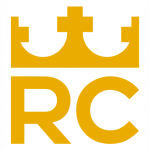

Credits
1.0
Topics will include: what it means to age as individuals and as populations; ageism and elder abuse; the fight against aging; institutionalization of elders; building age-friendly communities; poverty and aging; aging in a global context; a theology of aging. Students will be evaluated on two reflection papers; one clay model and explanatory paper; written final examination; class participation.
Students successfully completing this course will be able to demonstrate the following learning outcomes. (Not all categories will be required for all courses.)
(A) IN RESPECT OF GENERAL ACADEMIC SKILLS students will develop
— critical thinking skills through case work and directed discussion;
— effective communication skills through in-class discussions and assigned reflection papers;
— the ability to marshal factual information required for bioethical analysis through lectures and assigned readings;
— the ability to work collaboratively to moral and personal insight through directed in-class discussions.
(B) IN RESPECT OF THE UNDERSTANDING OF THE CONTENT OF ONE OR MORE THEOLOGICAL DISCIPLINES, through the readings and lectures students will develop:
— an understanding of approaches to Moral Theology and bioethical theory;
— an understanding of Catholic Church teaching on various bioethical issues;
— an understanding of historical and current intersections of Catholic Moral Theology and Bioethics
(C) IN RESPECT OF PERSONAL AND SPIRITUAL FORMATION students will have the opportunity:
— to become aware of personal assumptions and biases operative in their understandings of Moral Theology, Catholic Church teaching, and issues in Bioethics;
— to consider alternative approaches to and understandings of bioethical issues in light of Catholic Church teaching;
— to have in-depth dialogue about issues, ethical theory, Catholic Church teaching and personal moral and spiritual development in a forum that is curated and safe.
(D) IN RESPECT OF MINISTERIAL AND PUBLIC LEADERSHIP students will have:
— a familiarity with current bioethical issues;
— the capacity to bring critical thinking to those issues;
— the ability to view those issues in light of Catholic Church teaching.
A detailed course schedule is available for download.
Week 1
Introduction to Aging
Week 2
Ageism
Week 3
The Fight Against Aging
Week 4
The Frail Elderly
Week 5
Aging in Place
Week 6
Elder-Friendly Communities
Week 7
Aging and Poverty
Week 8
Institutionalization of Elders
Week 9
The Silver Tsunami: Aging and Resource Allocation
Week 10
Presentation of Models
Week 11
Aging in a Global Context
Week 12
The Possibility of a Theology of Aging